
How to overcome panic when scuba diving so you can enjoy this wonderful underwater sport
I felt I needed to write this article as I know what it’s like to panic when scuba diving. I’d like to offer some tips about how to overcome panic when scuba diving. It’s one thing having a panic attack under normal circumstances, but if this happens underwater it can be quite overwhelming.
Which is why it’s important to understand how to overcome panic when scuba diving. How you overcome panic when scuba diving is to use mind distraction. Focus on what’s around you on the dive and get interested in what you can see. Control your breathing as this will help stop the panic attack and will conserve your air too. If your panic is caused by Nitrogen Narcosis ascend a few feet.
I have suffered from a panic attack when scuba diving myself. Which is why I know how important this question is to other scuba divers. Try to remind yourself why you love scuba diving and focus on this reason.
If you’ve suffered a panic attack whilst scuba diving and as a result it has affected you to the extent you no longer dive, it doesn’t have to be that way.
The best way to do more diving and perhaps overcome a panic attack you had when diving, is to book yourself on a scuba diving liveaboard. You can check the latest and best deals on liveaboards using the following window:
What is panic?
Firstly, let’s take a look at what panic actually is. If you look at the definition of panic, this is described as ‘a sudden uncontrollable fear or anxiety, often causing wildly unthinking behaviour.’
That’s why I chose the above image for this article. A panic attack is usually exaggerating the fear. When you panic it’s about an overwhelming sense of fear and of being out if control.
Panic attacks can often strike out of the blue, and without warning.
Take reassurance that panic attacks can be treated. They are a bit like falling off a horse though. They always say to get back on a horse immediately after a fall. In a similar vein, if you suffer from a panic attack don’t leave it. The longer you leave it the worse it can get and you may get more attacks. It may begin to affect your life.
In this context, it may prevent you from scuba diving. This would be sad, and is what happened to me for a while after the experience.
When the panic attack hit me, I had no idea about how much what was going on in my life at that time was affecting me. The panic attack was a signal. It was a signal for me to sit up and take note.
What are the symptoms of a panic attack?
A panic attack will feel like there’s imminent danger. But a panic attack is about a perceived danger, not a real one.
The symptoms for a panic attack include those of a fight or flight response. Fight of flight include the following changes, symptoms and responses. The ones in bold are the signs you may noticeably experience during a panic attack too:
- Increased heart rate (Which in a panic attack can feel like heart palpitations, cause chest pain and feel like you’re having a heart attack).
- Rapid breathing (Hyperventilating).
- Constriction of blood vessels to some parts of the body and dilation of blood vessels to other parts (i.e. an increased blood flow to the tissues needed for escaping, which include the skeletal muscle groups, for example the leg muscles. Functions not needed in a fight or flight situation include digestion).
- Pupil dilation.
- Auditory exclusion (loss of hearing).
- Tunnel vision and the loss of peripheral vision (This can be manifest as a sense of feeling detached from your surroundings).
- Sweating.
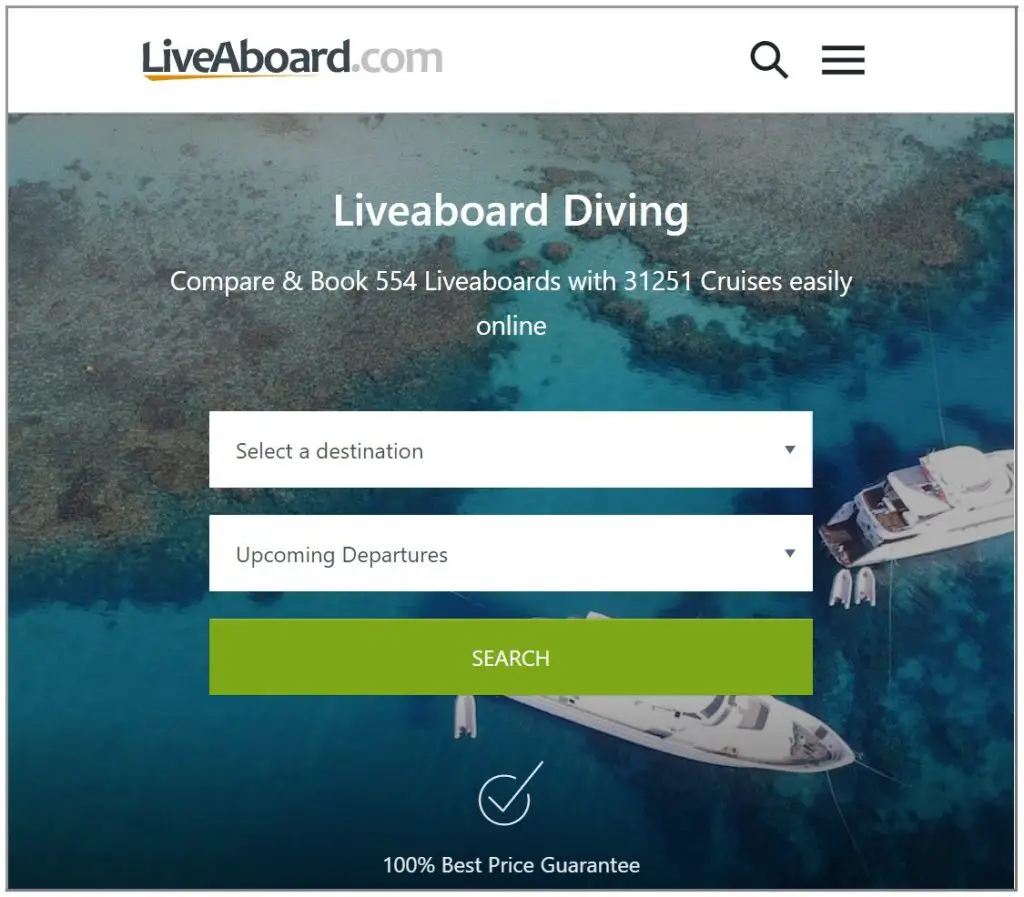
Panic attacks may also include these symptoms:
- Trembling or shaking, which is the same sensation as shivering when cold (This is as a result of increase blood flow to the legs and arms, where the body is preparing for fight-or-flight)
- A choking sensation
- Feeling sick or nausea
- Feeling weak or dizzy
- Fear of dying, losing control and of losing your mind
- A feeling that danger is nearby
- A feeling of wanting to escape
If you get at least four of the above symptoms (i.e. in both lists), it’s likely you’re having a panic attack.
The fight or flight response is an in-built system to our sympathetic nervous system, which is designed to protect us against a predator attack. Panic attack sufferers report fears that are consistent with a predator attack too.
A panic attack is therefore an inappropriate triggering of the fight-or-flight response. In a predator attack there would be a fear of dying. There could also be a loss of control, which would be the case if the predator had its jaws around us.
A panic attack is about a perceived danger, not a real one.
What can trigger panic attacks in scuba divers?
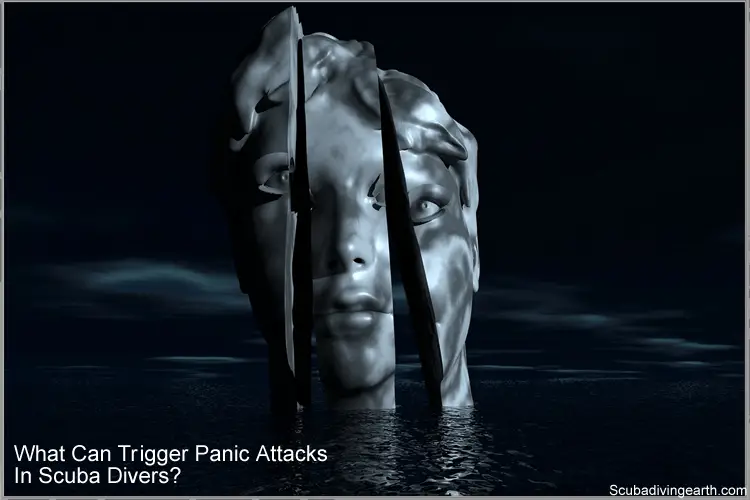
There are many triggers for panic attacks that can come from life in general. However, there are also triggers which are also specific to scuba diving, for example Nitrogen Narcosis or being ‘Narked.’
In all cases they can often occur totally unexpected. They can even feel like you’re suffering from a heart attack.
They are extremely scary when they are happening, and they can affect you for a long time afterwards.
Nitrogen Narcosis can trigger anxiety or fear when scuba diving
Most will say that Nitrogen Narcosis symptoms include euphoria and generally being silly. However, Narcosis can trigger anxiety or fear too.
Whilst Nitrogen Narcosis is specific to scuba diving, the factors that contribute to a narcosis induced panic attack are the ones that are unrelated to scuba diving also.
This is what happened to me. It was a deep dive on a wreck out from Littlehampton in the UK. There were three of us diving in a buddy-threesome. We were diving on the SS Moldovia ship wreck, which was torpedoed in the First World War.
We descended to the bottom, which was at about 47-48 metres (154-157 feet). It wasn’t too long after we’d reached the bottom, in fact the panic attack kicked in right at that moment.
We would always do our usual okay signals on reaching the bottom. When Colin, one of my two dive buddies, signaled to me to check I was okay, I had to respond with an ‘I’m not-okay signal.’
He looked at me puzzled.
My heart was racing and fear had set in at the beginning of the dive
My heart was racing, I felt unsafe and and I thought I was going to die. The only signal I could think to do then, was to point to my head. This I hoped suggested to my dive buddies that there was something going on in my head that I wasn’t happy about.
Not wishing to stay around, as my breathing had already started to increase, I indicated to Colin and Mike that I was going to surface. I gave the ‘thumbs-up’ scuba diving signal for an ascent, but also signaled to them to remain and continue with their dive.
My long ascent from 48 metres (157 feet) began on my own, back up the shot line.
This was probably the wrong thing to have done in hindsight. Having gone through this experience, if anyone does the same with me, then I will hand-hold them to the surface. What went in my favour was the many hundreds of dives I’d done to that point and my extensive experience of diving at depth.
Managing to keeping myself together, with a huge need and urge to get to the surface, I slowly ascended the shot line, using the hand-over-hand technique. By this time I was hyperventilating, but I did have the sense of mind to switch between my two regulators. I had a un-manifolded twin-set on my back, which meant I had two separate regulators to manage.
My heavy breathing, and because of the depth I was at, meant that my air was being consumed very rapidly. This only added to my anxiety and fear. My thoughts; ‘will I make it to the surface, before running out of air?’
Of course I did, as I’d not be writing this article now, but at the time I can tell you it was a lonely place, a long way to ascend. It was my longest and most scary ascent I’ve ever experienced.
Having since gone through cancer, I now put this experience into perspective, but I know at the time it was very scary. For me it was a real and present danger.
Nitrogen narcosis triggering a panic attack
My panic attack was triggered as a result of Nitrogen Narcosis. Previously, the only time I noticed Nitrogen Narcosis was when I behaved slightly strangely. One time I wrote something on my divers slate that made sense to me at the time, but my buddy couldn’t read it. It was only when we got to the surface and laughed at my scribbling’s that it then made no sense at all.
So for me after years of diving, it was strange to experience this different reaction to the nitrogen in my system at depth. However, it was only after I reflected on what was happening in my life at this point, that it all made sense. My wife had just left me for another man and taken my five year old daughter away from me.
This caused huge stress and upset for my life at the time. The panic attack was a total surprise and shock to me, but was a classic symptom of circumstances at play.
How to overcome panic when scuba diving

Overcoming panic attacks for scuba divers will be similar to anyone who suffers from panic attacks. However, as demonstrated in my panic attack at 48 metres (157 feet), a panic attack suffered when scuba diving could be potentially life threatening as well.
So if you are suffering from panic attacks, you may be better not scuba diving until such time as you have got the bottom of why they are happening. Plus until you have taken steps to prevent them from happening.
If like me you suffer from an unexpected panic attack whilst scuba diving, you need to try some of the following techniques:
Let your buddy know you are having a panic attack
First things first, if you are suffering from a panic attack let your buddy know. You may require their help and it’s important they know that something’s wrong.
More Reading: How do I get a dive buddy? (5 easy ways to find a dive buddy)
Ascend a few metres or feet if your panic attack is triggered by nitrogen narcosis
If you are at a depth of 30 metres (100 feet) or more, your thoughts and feelings may be triggered by Nitrogen Narcosis. Ascend a few metres or feet and this can some times clear the narcosis affect for you to continue and enjoy the dive.
A year or so after my original panic attack I was diving out from Dartmouth with fellow diver Jim on a wreck at about 44 metres (145 feet). On our descent at around 35 metres (115 feet), a feeling of doom started to come over me. I stopped descending and came up a few feet. Waited for a few moments and the feeling cleared. I then continued my descent and I carried on with the dive.
As you begin to experience this feeling, you have to take control of your mind. You must begin to think rationally. Think about the number of times you’ve dived before and how every time you’ve enjoyed it and it has been safe.
If you experience this feeling of doom where you’ve not dived many times before, take comfort from the fact that there are millions of dives happening around the world everyday without incident.
Think rationally and positively about how you’ll be just fine. This isn’t easy, as I discovered myself the first time I experienced a panic attack. But the first time I didn’t know what was going on.
Take control of your breathing will help with a panic attack when scuba diving
Taking control of your breathing is key to overcoming a panic attack. As in most cases, a panic attack will cause you to over-breathe or to hyperventilate.
By taking control consciously of your breathing, this will help to alleviate the panic. It will help you to calm down. In meditation you learn to control and think about your breathing and this has a major impact on the brain. The affect is a calming one and you may find you will calm down and be okay.
Taking control of your breathing is also important for your air consumption too.
Distract your mind and focus on what’s around you will help calm your mind when scuba diving
Occasionally on scuba dives, and especially the deeper dives, I still get the occasional mind wonder and the beginnings of a panic attack. Aside from consciously controlling my breathing, I distract my mind.
I do this by really engaging with what I can see on the dive. If I’m diving on a coral reef, I start to look for moray eels or better still for octopuses. I make sure that I’m not dwelling on whatever has come into my mind, which has triggered the anxiety.
Something you may find strange, if I’m surrounded by sharks I would never suffer from a panic attack. This is because I love diving with sharks and this would be a total distraction where I’d never even start to think doomed thoughts. How bizarre is that to those shark worriers out there!
Always consider aborting the dive if you have a panic attack scuba diving
If you’re not able to overcome the feelings, and the anxiety turns into a full panic attack, you must consider aborting the dive. You are putting yourself and fellow divers at risk if you don’t.
However, you need to remain in control of your feelings, even as hard as hard as that may be. You need to return to the surface slowly and still do all the required safety stops, this includes decompression stops where applicable
Do not rush to the surface if you’re panicking.
How do you stop getting panic attacks when scuba diving?
There are many contributing factors that can lead to an unexpected panic attack. There are many things you can do to stop them from happening too.
Steps to take to overcome panic attacks would include the following:
Learning and understanding about panic attacks
Reading articles like this one and by having a better understanding of panic attacks and why they happen is a step in the right direction.
Knowing more about panic attacks will for one help you to understand that it’s normal and you’re not going crazy. Plus you will be better placed to take some of the steps suggested in this article to put an end to any more episodes of anxiety or panic.
Avoid caffeine, alcohol and smoking
I apologise to those of you who love all three of the above, that is you like a drink (i.e. An alcoholic drink), you drink coffee and you’re also enjoy smoking. This could be a real challenge for you.
However, it is well documented that alcohol, cigarettes and coffee or other beverages that contain significant caffeine (e.g. Red Bull) can affect the onset of panic attacks.
Limit any caffeine intake on the morning of the dive. Plus limit the number of cigarettes you smoke before and in-between dives.
Don’t drink heavily the night before either, as this will impact your diving. This may not just impact anxiety or panic attacks, but you may end up feeling ill on the boat too.
Check with your doctor for certain drugs
It’s possible that if you are taking prescribed drugs (or non-prescribed drugs for that matter), that these may affect your scuba diving. You should always check with your doctor before scuba diving about how these may affect you.
Nitrogen Narcosis may not be the only aspect of scuba diving that the drugs you are taking may affect. Be safe, be careful and check with your doctor.
Taking regular exercise
Doing regular exercise is a natural way to relieve yourself of anxiety and stress. This gets the blood pumping and is good for the brain and your nervous system. Exercise is also good for overall scuba diving fitness in any case.
Your air consumption when scuba diving is affect by your fitness levels, so by getting fitter will help alleviate stress and anxiety and it will improve how much air you consume when scuba diving too.
Get plenty of rest and sleep
It’s well known that when we are tired things always look worse than they really are. A lack of sleep can make anxiety worse, so always make sure you get plenty of sleep the night before any scuba diving.
Take a look at your life and what’s going on
As with me, it could be you have loads going on in your life. There could be some really stressful situations that are affecting you, like divorce and work or business related stress. All of these can have an impact on your overall mental health.
For me, whilst I was going through the divorce and coming to terms with no longer having my daughter live with me, and especially after suffering a panic attack, I took some time out from scuba diving.
It’s important to note that my decision wasn’t one of avoidance as such, but rather a conscience decision to not scuba dive for a while until things had settled down in my life.
However, what I did do was took a good look at my life, my diet and I also had some counselling too. This meant that I dealt with the problem right away, rather than leave it and ignore what had happened.
Meditation and other relaxation techniques
Meditation is good for you in many ways. Learning to relax provides many health benefits, for example, lower blood pressure, reducing stress, alleviating anxiety, helping with sleep and generally replenishing mind, body and soul.
As with how improving your fitness can benefit scuba diving and air consumption, meditation and relaxation can have similar affects too. If you’re anxious when scuba diving, you’ll consume more air. If you can learn to relax, this will help you to prevent further panic attacks, help you to generally relax more in life too and help you to extend your dive times by consuming less air.
Within meditation and relaxation, you will learn how to control your breathing.
Controlling your breathing
One of the many symptoms of a panic attack is hyperventilating. This is one of the worst symptoms of a panic attack when you associate it with scuba diving.
When you’re diving, you only have a limited supply of air. The last thing you need is to be hyperventilating and consuming your air too quickly.
Using breathing techniques, like deep breathing, can help you relieve symptoms of panic. You can use this technique to calm yourself in situations of anxiety.
Review your diet
What you eat can affect anxiety, both in a good way and in a bad way. Studies show that some foods make us feel calmer, whilst other foods can act as stimulants, for example coffee and caffeine.
Whilst what you eat may not cure the reason why you’re suffering from anxiety or panic attacks, making some modifications to your diet may give anxiety help and relief.
According to Mayoclinic, there aren’t any diet changes that can cure anxiety, but watching what you eat may help.
Other solutions or treatment for panic attacks when scuba diving
Seek professional help from a therapist
There’s still a stigma attached to mental illness and seeking help from a therapist in the UK, but not so much in American. Seeking professional help from a counselor, a psychologist or similar is one of the best things you can do.
If you choose the route of a therapist in whatever form you prefer, they will help you to understand what’s triggering the anxiety or panic. They will work with you and help you to never have a panic attack again.
You can combine this with some or all of the above tips and suggestions too and rid yourself of the risk of suffering from a panic attack.
If you don’t take action and change your life and lifestyle, you may start to avoid situations that cause you to have panic attacks. This might include no longer scuba diving. This would be sad if it’s something you love to do.
The type of treatments available for panic attacks would include:
- Cognitive behavioral therapy (CBT) – The main focus for this type of treatment or similar types to CBT is to help you to put things into perspective.
- Neuro linguistic programming (NLP) – This can work well in training your mind to see things differently.
- Desensitisation for panic disorder – This is about using your imagination to overcome your fears – here’s an article on this by very well mind.
- Medication treatment for panic attacks – I’m not a doctor and I’m not qualified to give advice on taking drugs, but these are a possibility. Not a keen fan myself on this solution, but you can take antidepressants or Benzodiazepines, which are anti anxiety drugs.
The dive psychic
The Dive Psychic has a few free downloads that may help you – you can find these here: Training Exercises for Controlling Diver Stress & Panic
The PanicMiracle solution
If you would love to experience the weightlessness associated with scuba diving. It you’d love to visit the underwater world and discover the wonderful sea creatures and scenery below the surface.
But if you’re prevented from doing this due to a fear, anxiety or phobia, then please try out ‘PanicMiracle.’
Click this link to find out more about the Panic Miracle.
The PanicMiracle is the only clinically proven drug free holistic system for treating panic attacks and general anxiety.PanicMiracle
Why is avoiding a panic attack important when scuba diving?
At the time my panic attack happened I had no idea it was going to happen. This is true of most people. I therefore wasn’t aware of what was about to happen or what could of happened as a result.
I therefore wanted to add a few extra thoughts about how dangerous it could be for you to have a panic attacked when scuba diving, so to watch out for the signs.
The symptom of a panic attack that is more of a risk to scuba divers is rapid breathing or hyperventilating. As already discussed hyperventilating when scuba diving isn’t good. You’ll be consuming your air very rapidly.
If this is happening, you either need to take control of the panic attack or ascend immediately. However, if the panic attack happens at a point where your air supply is already getting low and you start panicking, this is where you need your buddy at hand for their alternative air supply as backup.
Resist the urge to shoot to the surface if you have a panic attack scuba diving
If you suffer a panic attack on land, whilst the experience is uncomfortable and scary, you are not underwater and reliant on an air source and where things can quickly get out of control.
When panicking, your rational brain tends to disappear. Divers make the mistake of shooting to the surface, which can cause major problems, like the bends or decompression sickness.
Never do this and take as much control as you can to use your rational thinking to stay safe.
What signs should I watch out for that may be a sign of anxiety which may lead to a panic attack?
There are signs you could look out for, which you may be ignoring. However, before I talk about these, sit back and examine your life and your lifestyle.
Have you got anything particularly stressful going on at this point in your life? Are you going through a relationship breakup or a divorce? The stress of divorce can be huge, I know as I’ve been through it twice!
Is work stressful or do you run your own business, which may be going through a difficult time?
Any stressful situation can lead to anxiety and be a trigger for a panic attack. Particularly when linked to Nitrogen Narcosis or the Narks!
In addition to examining your life, the signs you maybe shouldn’t ignore include:
Fatigue – When you are stressed this drains your body’s resources. Stress drains the adrenal glands which play a major role in balancing the body and its wellbeing. Weakened adrenal glands can lead to fatigue.
Sugar cravings – If you have a particular craving for sugars or starchy foods this may be caused by stress and anxiety.
Digestive problems including Irritable Bowel Syndrome (IBS) – Chronic anxiety has been linked to irritable bowel syndrome. There are many connections between the brain and the digestive system. If you are not in balance and suffering from stress, your bowels will react to this.
Difficulty sleeping – If you are having difficulty sleeping you’ve probably got something on your mind that’s keeping you awake. This can be caused by anxiety and stress. This of course will add to your fatigue too.
Muscle pain and headaches – Stress can manifest in many ways. One of these is what’s called referred pain. When you are stressed, this can impact your muscles. But also the muscle tension caused by stress can then lead to headaches too.
Mood swings – If you are more susceptible to mood swings or if you are more irritable than usual. Or if you find yourself getting angry when you wouldn’t normally do so, these could all be signs of stress and anxiety.
I hope you enjoyed this article about how to overcome panic when scuba diving
I’d love to hear from you. Tell us about your adventures of diving and snorkeling, in the comments below. Please also share your photos. Either from your underwater cameras or videos from your waterproof Gopro’s!
If this article hasn’t answered all of your questions. If you have more questions either about snorkeling or scuba diving (or specifically about how to overcome panic when scuba diving), please comment below with your questions.
There will also be many more articles about scuba diving (and snorkeling) for you to read and learn about these fabulous sports.
Have fun and be safe!

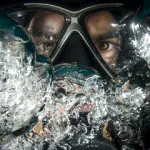
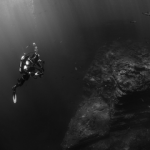

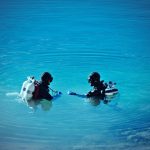

Thank you so much for your article
I had a panic attack at 31 meters yesterday when I was diving . I had to go up a bit as I guessed it was narcosis . All my brain was telling me was to take the regulator out of my mouth and go to the surface . But my experience kept fighting back with it .
No no don’t listen to it you know it’s just narcosis it will go away .
It was for sure a scary moment.
Glad to read your article and feel to be seen
Hi Shabi, thank you for your comment and for also sharing your experience of narcosis…it can be a very scary place to be.
Take care and enjoy your diving!! Russell